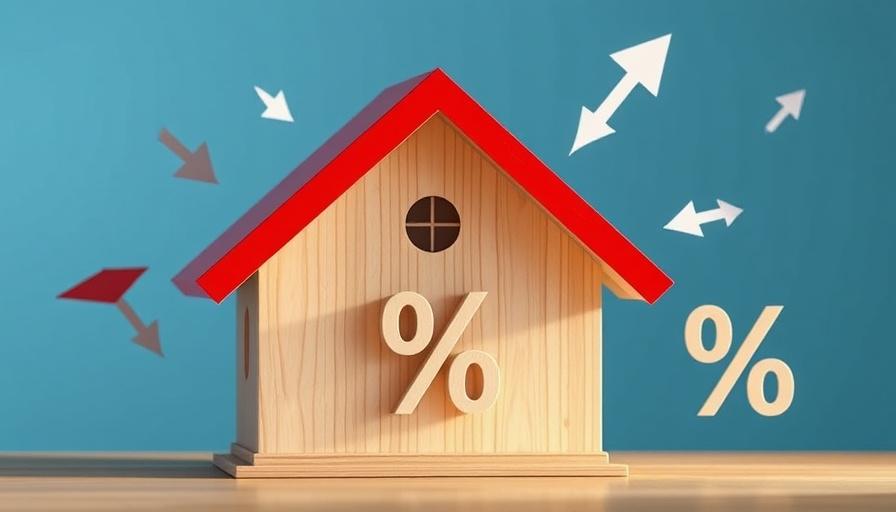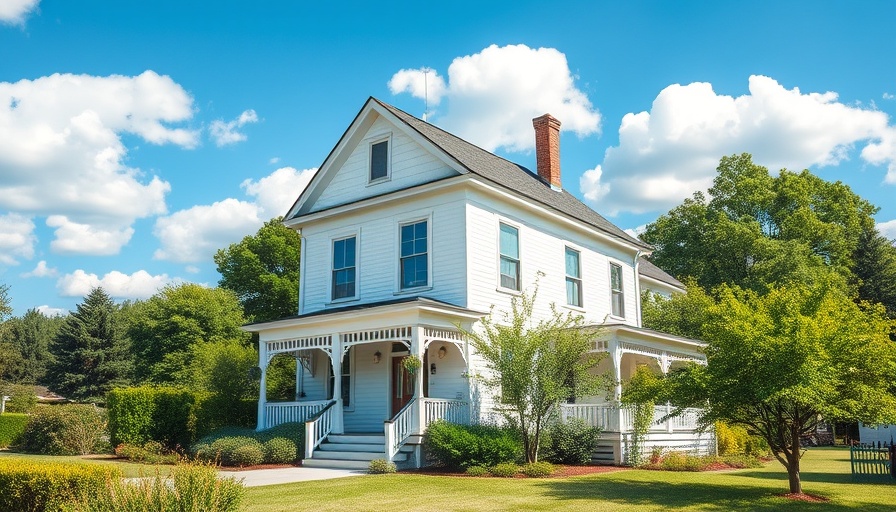
Asking Prices Drop Significantly This Summer
This summer has brought unexpected changes to the UK housing market, with asking prices for residential homes declining by an average of £10,000, according to the latest data from Rightmove. This shift marks the largest drop recorded in some regions, signaling potential shifts in buyer sentiment as the market grapples with a myriad of economic factors.
The Factors Behind the Price Decrease
Several dynamics contribute to this significant price drop. Increasing interest rates, which have reached heights not seen in recent years, have made mortgages more expensive for potential buyers. With rising costs, many first-time homeowners find it challenging to enter the market, leading sellers to adjust their expectations and reduce asking prices to attract buyers.
Additionally, the cost-of-living crisis persists, further straining household budgets and dampening consumer confidence. Potential buyers may be adopting a more cautious approach, favoring affordability over aspiration, which has compounded the decline in asking prices.
Local Market Variations and Their Impacts
The price drops are not uniform across the UK. Certain areas, particularly in the North West, have seen steeper declines than in the South East, reflecting varying demand and socio-economic conditions. Areas that previously thrived amid the pandemic uplift are now feeling the brunt of economic pressures. For instance, towns with a heavy reliance on industries facing downturns are witnessing larger price corrections.
Local buyers are urged to carefully analyze their own markets, especially if they reside in areas experiencing significant shifts. Sellers should also remain pragmatic, as high initial asking prices could deter potential offers.
Insights from Real Estate Experts
Industry experts emphasize that while the decline can be viewed negatively, it could create new opportunities for certain segments of the market. For instance, homeowners looking to downsize or invest may find more buying power now than they did in previous years, as lower prices could enable greater negotiation leverage.
Market analysts suggest that focusing on the mid-range of property values may prove beneficial. As more homes become relatively affordable, buyers may gravitate towards properties previously outside their budget, prompting a reassessment of market dynamics.
Future Predictions in a Volatile Market
The outlook for the housing market remains uncertain. Analysts predict asking prices may continue to fluctuate in the wake of economic trends, including inflation and government policies aimed at stabilizing the market. If mortgage rates begin to ease, we could see a resurgence in buyer activity, potentially stabilizing prices.
However, should economic uncertainties persist, the downward trend could solidify, prompting further price adjustments. Monitoring these developments will be crucial for buyers and sellers alike as they navigate this turbulent housing landscape.
Taking Action in a Shifting Market
Given the current climate, potential homebuyers might need to reevaluate their strategies. Many real estate professionals advise conducting thorough market research, understanding local price trends, and being vigilant about financing options. With mortgage rates having a direct effect on buying power, being educated about available options can help buyers make informed decisions.
For sellers, setting realistic expectations based on current market conditions is key. Properties may require more time on the market, and price adjustments may be necessary to attract serious buyers.
As these trends evolve, it’s essential for both buyers and sellers to stay alert and informed of market shifts. Understanding these dynamics can not only guide better decisions but also maximize opportunities within the ever-changing housing market landscape.
 Add Row
Add Row  Add
Add 



Write A Comment